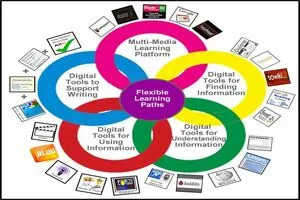educational and institutional leadership program for teachers
Introduction
In today’s competitive business landscape, effective leadership is crucial for an organization’s success. Leaders are the driving force behind a company’s growth, innovation, and adaptability. To cultivate strong leaders, organizations are increasingly turning to leadership training programs. We will delve into the world of leadership training programs, exploring their significance, key components, and benefits and addressing frequently asked questions. We’ll also provide insights from Burraq Engineering Solutions, a leading provider of leadership training programs.
Why Leadership Training Programs Matter
Effective leadership is a critical factor in achieving an organization’s goals. Leadership training programs are designed to help individuals develop the skills and attributes necessary to lead and inspire others. These programs offer a structured and systematic approach to enhancing leadership capabilities. Here’s why they matter:
1. Enhancing Leadership Skills
Leadership training programs equip participants with essential skills such as communication, problem-solving, decision-making, and emotional intelligence. These skills are essential for leading teams and making sound strategic choices.
2. Cultivating Confidence
Confidence is a cornerstone of leadership. Leadership training helps individuals build self-confidence, vital for leading with authority and conviction.
3. Building Effective Communication
Effective communication is crucial for inspiring and guiding a team. Leadership programs teach participants how to communicate with clarity, empathy, and impact.
4. Adapting to Change
In today’s fast-paced business environment, adaptability is key. Leadership training programs help leaders navigate change and uncertainty effectively.
5. Fostering Teamwork
Strong leadership fosters a positive team environment. Leadership programs emphasize Teamwork and collaboration, ensuring leaders build cohesive, productive teams.
Key Components of Leadership Training Programs
Leadership training programs encompass various components to provide a holistic development experience. These components are essential for maximizing the impact of these programs:
1. Self-Assessment and Evaluation
Before delving into leadership skills, participants are encouraged to assess their strengths and weaknesses. This self-reflection helps in setting personalized development goals.
2. Skill Development Workshops
Leadership training programs often feature workshops that cover topics such as effective communication, time management, conflict resolution, and more. These workshops offer practical tools and strategies.
3. Leadership Models and Theories
Understanding leadership models and theories is fundamental. Programs explore leadership approaches like transformational, servant, and situational leadership.
4. Coaching and Mentoring
Mentoring and coaching are integral to leadership development. Participants often receive one-on-one guidance to apply what they learn in real-life situations.
5. Case Studies and Practical Application
Real-life case studies provide insights into leadership challenges and solutions. Practical application is crucial for translating theory into action.
Benefits of Leadership Training Programs
Leadership training programs offer a wide range of benefits, both for individuals and organizations. Let’s explore some of the most significant advantages:
1. Improved Leadership Skills
The most apparent benefit is enhancing leadership skills, making leaders more effective.
2. Increased Employee Engagement
Effective leaders create a positive work environment that fosters employee engagement and motivation.
3. Higher Productivity
Well-trained leaders can drive higher productivity levels by setting clear goals and expectations for their teams.
4. Better Decision-Making
Leadership training programs teach decision-making techniques that lead to better, more informed choices.
5. Succession Planning
Organizations benefit from a pool of well-prepared leaders who can step into key roles when needed, making succession planning more straightforward.
6. Enhanced Organizational Culture
Strong leadership can shape the culture of an organization, making it more inclusive, innovative, and customer-centric.
FAQs about Leadership Training Programs
Let’s address some common questions individuals and organizations have about leadership training programs:
Q1. Are leadership training programs only for top-level executives?
No, leadership training programs are designed for leaders at all levels. They cater to entry-level supervisors, mid-level managers, and top-level executives.
Q2. How long does a typical leadership training program last?
The duration of a leadership training program can vary widely. Some are short, intensive courses that last a few days, while others are comprehensive programs that span several months.
Q3. Can leadership skills be learned, or are they innate?
While some individuals may have natural leadership qualities, leadership skills can be developed and refined through training and practice.
Q4. What is the ROI of leadership training programs for organizations?
The ROI of leadership training programs is significant. Companies that invest in leadership development often see improved performance, reduced turnover, and increased profitability.
Q5. How can I choose the right leadership training program for my organization?
Selecting the right program involves considering your organization’s specific needs and goals. It’s essential to research program providers like Burraq Engineering Solutions to find a good fit.
Insights from Burraq Engineering Solutions
Burraq Engineering Solutions is a trusted name in leadership training programs. Their commitment to developing leaders and enhancing organizational performance sets them apart in the industry. With a range of customizable programs, they cater to diverse leadership needs. From executive leadership to team management, their expertise covers it all.
- Concept and approaches to education administration management
- Components of Educational Administration
- Multilevel educational administration, management and governance
- Human relations in Educational Administration
- Human Resource Management in Education
- Teacher management and development issues
- Issues relating to management of Continuous Professional Development of teachers
- Educational Supervision & Classroom Management
- Appraisal to improve student learning
- Decision Making in Education Management and Administration
- School Supervision (Concepts & Theories)
- School Standards and their Evaluation
- Code of conduct of teachers and professional ethics
- Need and Importance of Research in Educational Administration
- Curriculum overview, Issues in Administration
- Applications of New Technologies in Education and Educational Administration
- Decision Making and Crisis Management in Education
- Assignment/Assessment

educational and institutional leadership program for teachers
- Rs 40,000/-
- Course Duration 1 Month
- Online Session
- On Campus Lecture + Practical
- Video Lecture Available
- Urdu & English
- 24/7 Support
- Fee: 40,000
- Duration: 1 Month
- Timing: 9AM-11AM, 11AM-1PM, 1PM-3PM, 3PM-5PM, 5PM-7PM, 7PM-9PM
